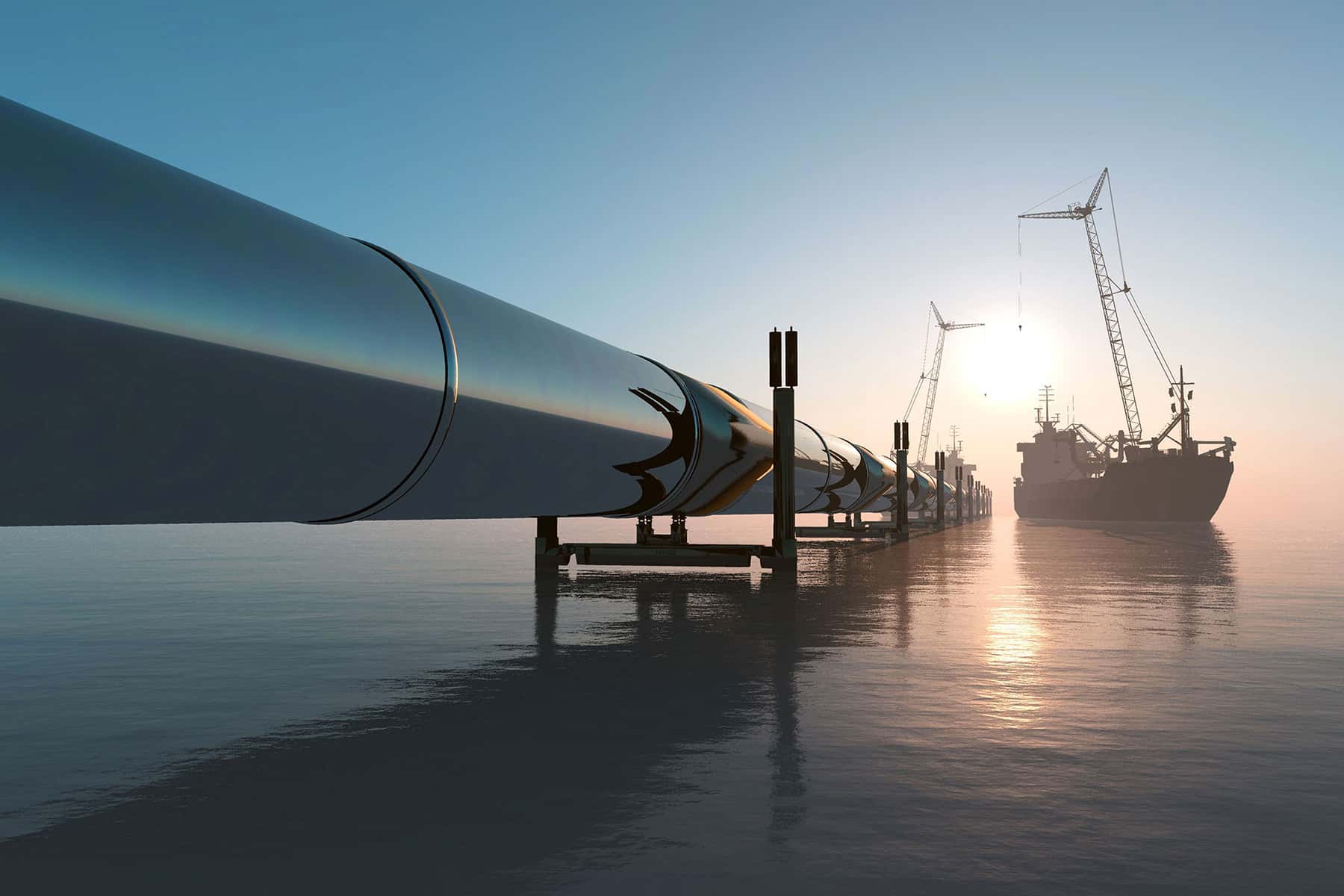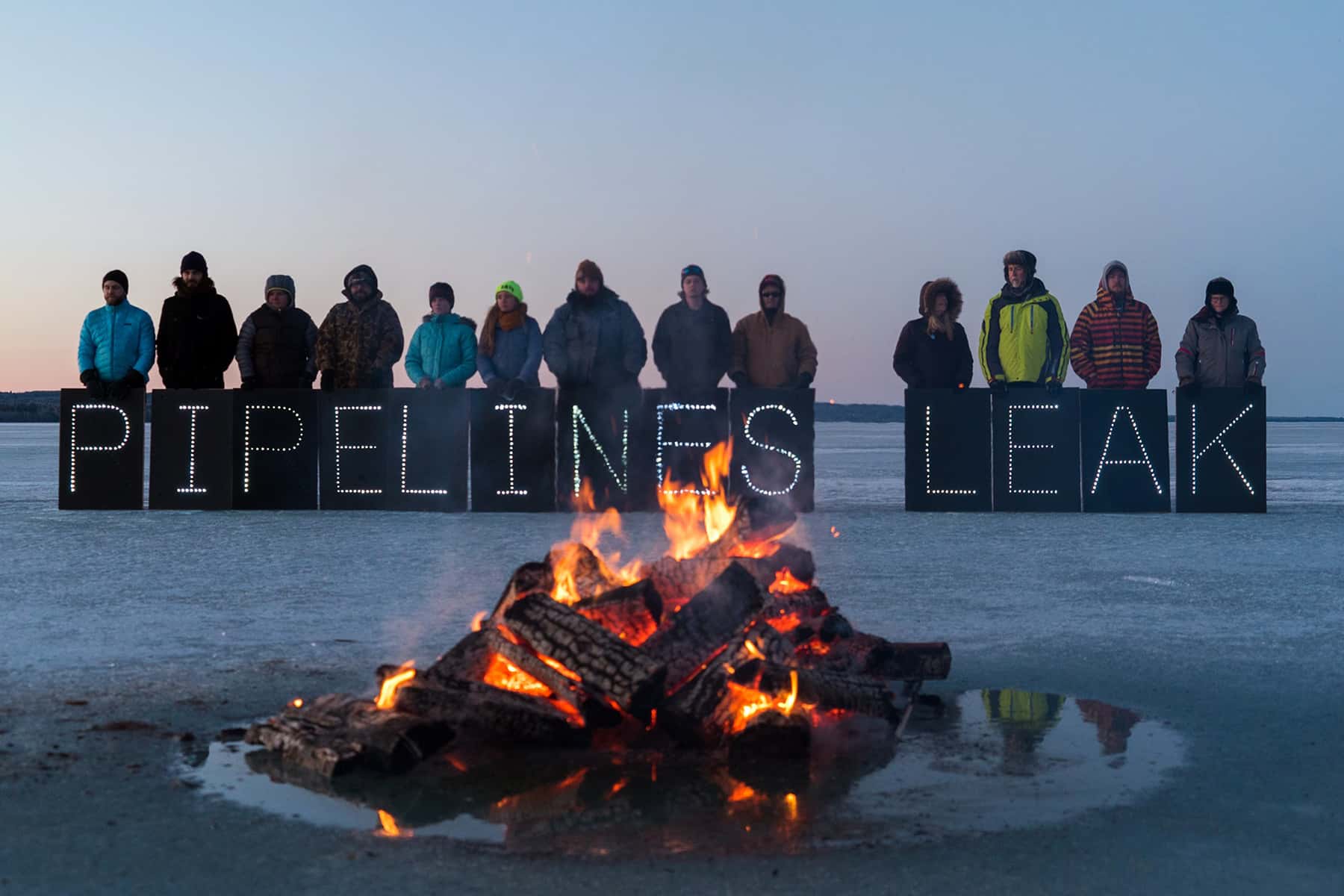
Three state attorneys general are supporting Michigan’s stance in its case to shut down an energy firm’s pipeline running through the Straits of Mackinac, including Wisconsin Attorney General Josh Kaul.
In June, Michigan Attorney General Dana Nessel sued Enbridge Energy and asked a Michigan court to rule the operation of Line 5 under its 1953 easement agreement with the state violates the public trust doctrine. Under the public trust doctrine, states hold land or natural resources in trust for public benefit or use.
In a recent filing, three Democratic attorneys general from Wisconsin, Minnesota, and California said Enbridge has no right to interfere with Michigan’s right to preserve its lands for public benefit under the public trust doctrine. They urged a Michigan court to reject claims by Enbridge that the federal government’s authority through the Pipeline Safety Act and U.S. Coast Guard supersedes state authority.
If the company’s position is accepted, Wisconsin Attorney General Josh Kaul told Wisconsin Public Radio the case could set a precedent and potentially undermine protection of natural resources in Wisconsin.
“That sort of precedent could have impacts not just for the case at hand, but for other cases where states were attempting to use their authority pursuant to their public trust doctrine,” said Kaul. “So that would include here in Wisconsin.”
Kaul said the state’s challenges with clean water and climate change underscore the need for states to maintain their authority.
“Making sure that states can step up and play a role in protecting our natural resources is important to the state of Wisconsin,” said Kaul. “It’s important for our economy. It’s important for our health and it’s important for our quality of life.”
However, some disapprove of Kaul’s involvement in Michigan’s case against Enbridge, including Scott Manley, executive vice president of government relations with Wisconsin Manufacturers & Commerce.
“It just strikes me as really odd,” Manley said. “It almost smacks of political grandstanding that he would use state resources to participate in a legal controversy in another state that has nothing to do with how Wisconsin law should be interpreted by a court.”
Manley said Wisconsin’s public trust doctrine is not the same as neighboring states. However, the basic principles are common to almost all states, said Richard Frank, director of the California Environmental Law and Policy Center in the University of California Davis School of Law.
Frank agreed the ruling in Michigan’s case could have a significant impact in other cases around the country when state and federal conflicts arise.
“A public trust precedent in Michigan would have some persuasive authority in other states like California and Wisconsin. It would not be binding on the state courts of those other states, but it is important,” said Frank. “I think that is why a number of other state attorneys general including California have focused on this lawsuit.”
Frank said courts have been reluctant to find federal law preemption when states are seeking to exercise their sovereign authority. The Sierra Club has also filed a brief in support of Michigan’s position and the attorneys general recognition of states’ authority to protect public resources, according to Sierra Club senior staff attorney Doug Hayes.
“The pipeline is sitting exposed at the bottom of the lake, and it’s an area where there’s a lot of ship traffic. If a ship were to drop or drag an anchor, for example, it poses a real risk of a pipeline oil spill,” Hayes said. “So, it affects the navigability of ships going through that area. Then, also if there were a spill … it would affect the entire public trust resource, which is the lake.”
Enbridge has asked for a Michigan judge to dismiss the case. The company argues its pipeline has been operating safely for decades under the terms of the easement agreement.
“There is no change in the operating condition of the pipeline or change in law to support the (Michigan) Attorney General’s position,” said Enbridge spokesperson Ryan Duffy in a statement. “That said we also know most Michigan residents recognize the tunnel as the best solution for making a safe pipeline safer, and we are committed to build it.”
Enbridge had reached an agreement to build a $500 million tunnel to house a new pipeline with former Republican Gov. Rick Snyder, which was approved by lawmakers in a lame-duck session. Nessel issued an opinion in March that the bill authorizing the deal was unconstitutional, ordering the state to stop moving forward on the tunnel.
A Michigan court ruled in Enbridge’s favor in late October, but the state’s attorney general argues it has no bearing on the lawsuit to shut down Line 5. Enbridge is continuing to move forward with rock and soil sampling as part of a $40 million effort to stay on schedule with the proposed tunnel project.
Danielle Kaeding
Overpass Light Brigade
Originally published on Wisconsin Public Radio as AG Josh Kaul Backs Michigan’s Stance In Lawsuit To Shut Down Enbridge’s Line 5
















